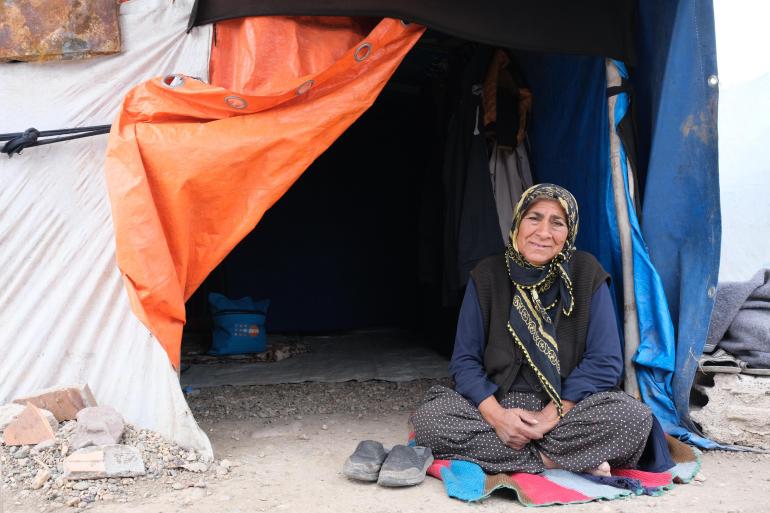Turkey’s ‘Roma’ groups have felt the earthquake’s impact more than others
Romani, Abdal and Domari communities have had a harder time accessing aid and support post-quake.
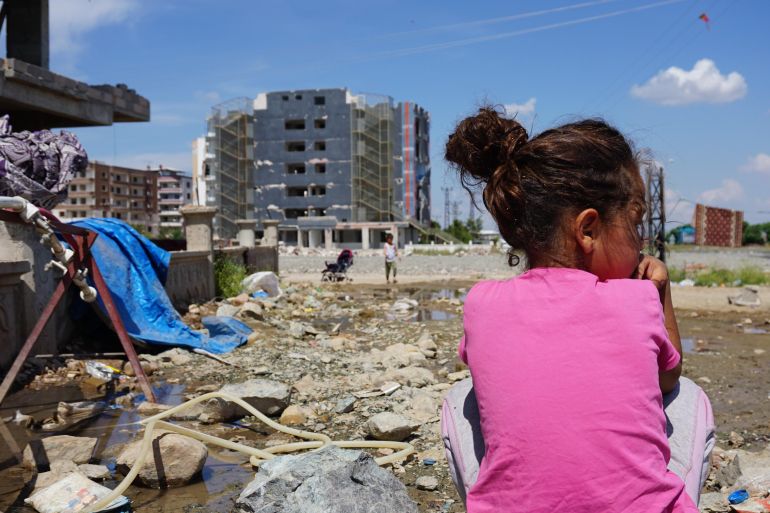
Istanbul, Turkey – The earthquakes that struck southern Turkey a year ago left millions facing the loss of loved ones, homes and jobs. But none were struck harder than those already on society’s bottom rung – Turkey’s Romani, Abdal and Domari communities.
Although not recognised as minorities in Turkey, these groups, which migrated from northern India over the last millennium, are estimated to number up to five million people who live in poverty, social exclusion and discrimination.
Keep reading
list of 4 itemsTeenage barber tidies up in Turkey’s earthquake camp
Rescue teams treat animals saved from the rubble of Turkey quakes
Syrians displaced by quakes fear cholera outbreak as cases surge
In the aftermath of the magnitude 7.8 earthquake – and the second, nearly as strong, that followed hours later – that hit in the early hours of February 6, killing more than 50,000 in Turkey and 8,000 in north Syria, Romani, Abdal and Domari families found themselves struggling more than others to access aid and support.
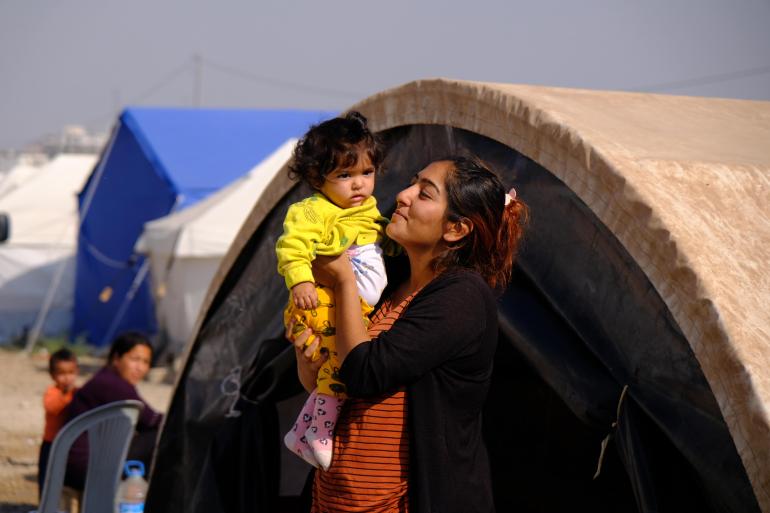
“Since the first days of the earthquake, Roma have experienced serious problems in accessing aid, clean water and shelter,” Serkan Baysak, co-founder of the Romani Godi civil society group, said. “The biggest [reasons] are prejudices and accusations against Roma.”
While “Roma” is used as a blanket term for those who left India at various times, there are three distinct groups in southern Turkey – the Romani, linked to those who passed into Europe; the Domari, who left India at a different time and did not reach Europe; and the Abdal, who solely identify as Turkish but still face discrimination as “Roma”.
Rising prejudice facing Turkey’s Romani, Abdal and Domari since the earthquakes has been fuelled by far-right hate speech, according to Jonathan Lee, advocacy and communications director at the European Roma Rights Centre.
“What happened with the earthquake is what we saw after the COVID-19 pandemic,” he said. “When these kinds of events happen, existing discrimination, existing prejudices inevitably amplify.
“Racism doesn’t take a break because there’s a war or an earthquake or a pandemic.”
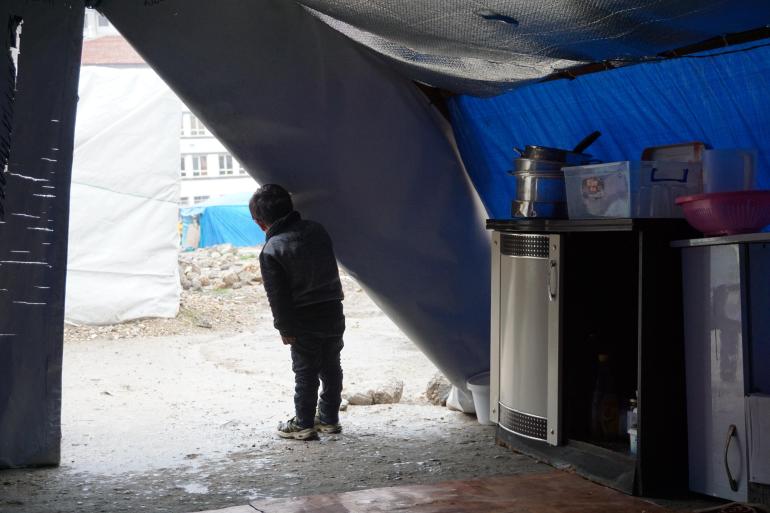
Many Romani, Abdal and Domari live in overcrowded households and do not have identity cards or other official documents, rendering it difficult to access services such as education and social assistance, even during normal times.
These groups have long suffered from exclusion, discrimination and negative stereotypes, including frequent bouts of displacement as a result of urban regeneration and outbreaks of racist violence.
In 2010, Turkey’s then-prime minister and current president, Recep Tayyip Erdogan, hosted a meeting of Romani, Abdal and Domari in a bid to address their problems.
There have been further initiatives in recent years to promote integration and better access to services.
However, according to research carried out by Romani Godi (the Roma Memory Studies Association) in 2021, inequality and poverty persist. The study found that monthly earnings were around 50 percent below the poverty threshold and nearly four in five experienced unemployment.
When the earthquakes struck, leading to a declaration of a state of emergency across 11 Turkish provinces, the Romani, Abdal and Domari found their problems worsening.
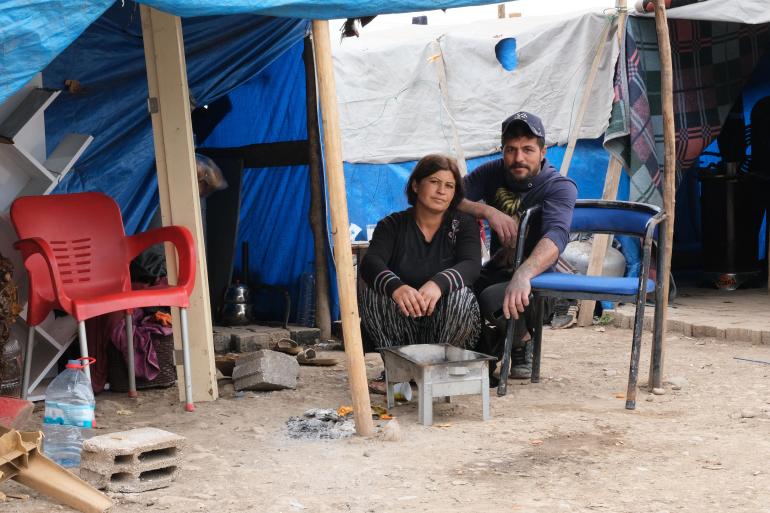
As survivors’ fears of looting the debris grew, old prejudices also rose to the surface and Romani, Abdal and Domari families were targeted by false accusations, sometimes leading to vigilante violence.
That many Romani, Abdal and Domari earned a living collecting recyclable material reinforced perceptions that they were seeking to plunder the ruins.
“Dom citizens who wanted to access aid in Hatay were met with sentences such as ‘Gypsies are looting and stealing,’” Elmas Arus, head of the Zero Discrimination Association, said.
“Women were beaten while trying to get help in Hatay and a mukhtar fired shots into the air to scare women who wanted to get clean water, driving them away.”
Exclusion forced many families to set up tents away from aid distribution areas, often near polluted streams or dump grounds, Arus added.
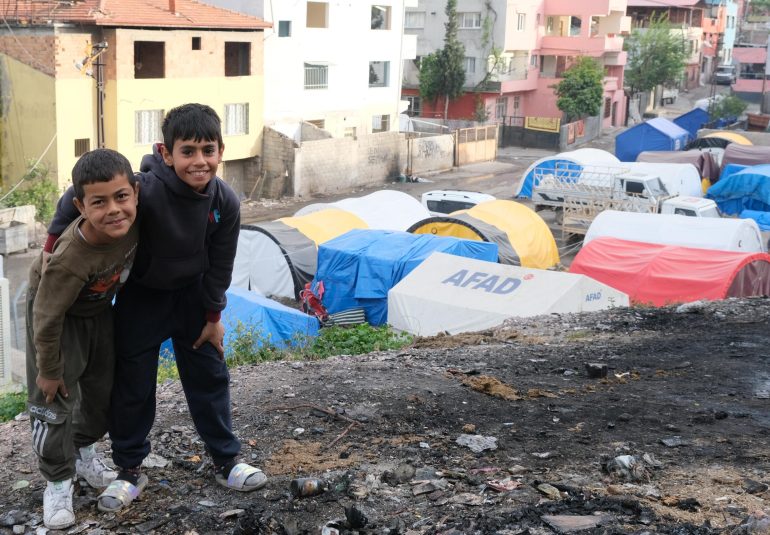
“Roma groups located on the peripheries … have difficulty accessing the city centre and health services there,” she said. “The unhygienic environment they live in causes them to catch various diseases. The elderly, pregnant women and children are especially at risk.”
Children also found themselves bearing the brunt of ostracism, according to Erkan Karabulut, project coordinator at the Hatay-based Civil Dreams Association.
“Before, people would say behind closed doors: ‘We don’t want our child in the same class as a Roma child’,” he said. “After the earthquake, it’s said directly to the faces of the Roma communities.”
When dealing with officialdom, the lack of documentation also created problems in getting financial aid and being allocated container homes.
“In Hatay, Malatya, Maras and other places there are many people still living in tents because don’t have any documentation so the state doesn’t provide them with a container,” Romani Godi’s Baysak said.
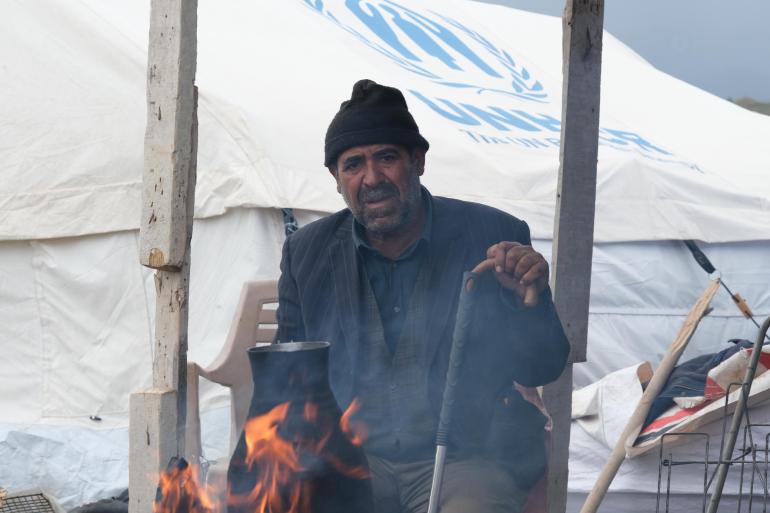
Due to multiple families living in one house registered to just one family, those not named on the title deed are not eligible for state support, he added.
Low literacy levels and a lack of online access hamper the ability of Romani, Abdal and Domari to get help.
Beyond the disaster area, minority groups also faced discrimination, according to Romani Godi and the Civil Dreams Association, which jointly sought to house a group of 20 Abdals in Ankara.
“They made them leave after just one night, claiming they were not earthquake survivors and they just came to Ankara for work and accused them of stealing,” Baysak said.
Those calling for greater support for Roma, Abdal and Domari demand fairer distribution of aid and concrete steps to tackle discrimination.
“These people don’t want to be soothed with just blankets, stoves and so on,” Karabulut said.
“We all have the right to a life worthy of human dignity and we think that these people should be allowed to have lives worthy of this dignity.”
